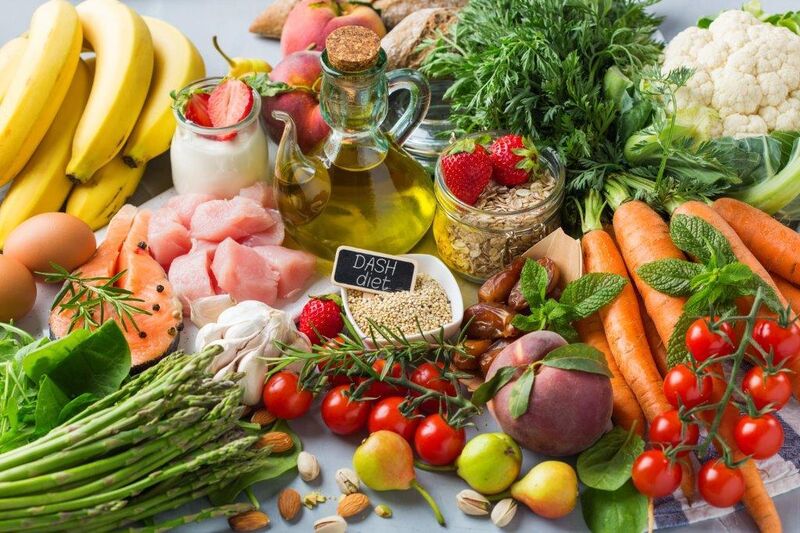Table salt, also known as the savory culprit, is excessively consumed in the Western world. When intake is too high, it can be accompanied by hypertension. In the long term this is very harmful to the blood vessels and kidneys and increases the risk of developing cardiovascular disease.
Salt, the DASH diet and Damhert: what do they have in common?

The effects of salt in the body. What happens?
In simple terms, this is what happens in the body: salt attracts water. The more salt we eat, the more liquor the body retains. This increases the total amount of blood in the body and, in this way, blood pressure will rise due to a greater volume in the blood vessel.
Of course, eating too much salt is not the only cause of high blood pressure. When someone suffers from a genetic disorder, smokes, consumes excessive alcohol, has high cholesterol (see blog about cholesterol) or does not move enough, they also runs a greater risk of developing high blood pressure.
Why is the recommendation so much lower than the actual intake?
The daily recommendation is between 5 and 6 g of salt. However, food consumption statistics show that the portion actually eaten a day is twice this recommendation. A lot of salt is industrially added to food, such as ready meals, cakes, meat preparations, cheese, etc. If you consume a lot of industrially produced products (which are now almost an integral part of our diet), you will automatically have a higher salt intake. If salt is added to the meal during preparation at home, it is almost impossible not to exceed the recommendation of 5-6 g of salt each day. Fortunately Damhert is there to support you with this problem, namely with the 'low salt' range. The range extends from mayonnaise and mustard (Damhert) to vegetable stock cubes (Damhert). A regular broth provides a whopping 2.93 g of salt, while a low-salt one (like Damhert's) provides only 0.26 g of salt. A considerable difference.
Are there remedies for high blood pressure?
A good solution to combat that excessively high blood pressure is to follow the DASH diet. DASH stands for Dietary Approaches to Stop Hypertension. The diet appears to have a positive impact not only on hypertension, but also on high cholesterol and insulin sensitivity in diabetes.
The DASH diet basically just consists of pure, healthy food. It is rich in: vegetables, fruits, whole grain products, low-fat dairy products, lean meat, fish and poultry, nuts, seeds and legumes, as well as various minerals and dietary fiber. It is low in prepared foods, red meat, added fats and sodium. Many of our food products comes to the front in this too: our nuts, seeds, kernels, legumes, dry fruits (Biofood), whole grain products such as pasta, couscous (Biofood)...
A fun fact to conclude: it is often said that using less salt leads to tasteless meals. However, our taste buds change every 8-10 days. When eating less salt is held up long enough, we get used to it. People even start to enjoy the pure taste of food more. Perseverance wins the day!
Stay informed and subscribe to our newsletter
Sign up and stay informed about new products, promotions and more.
























